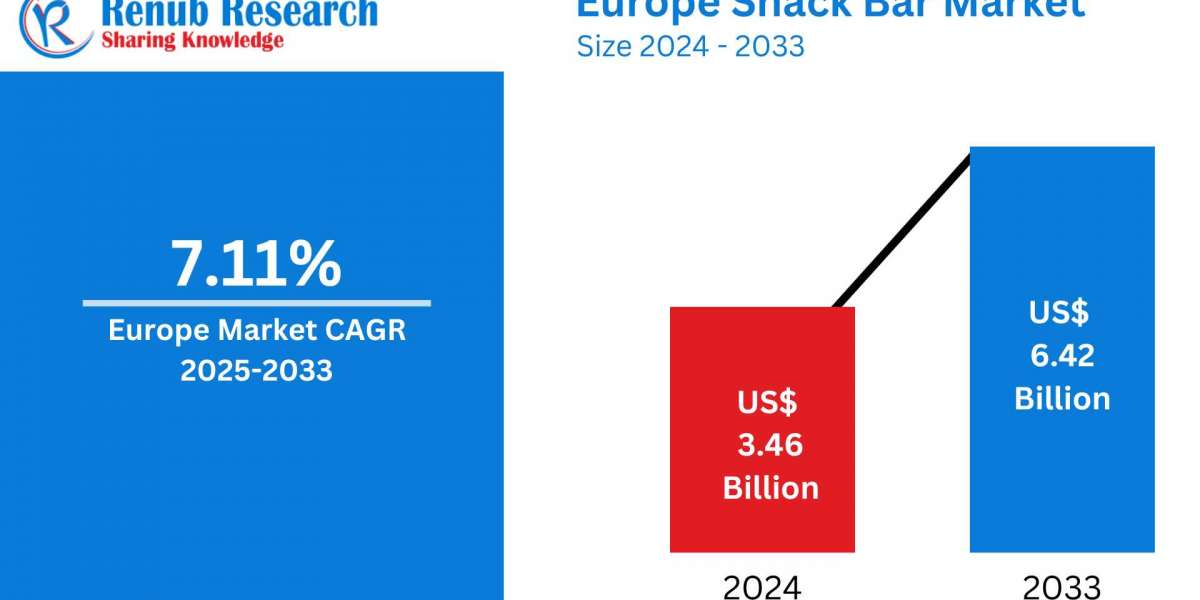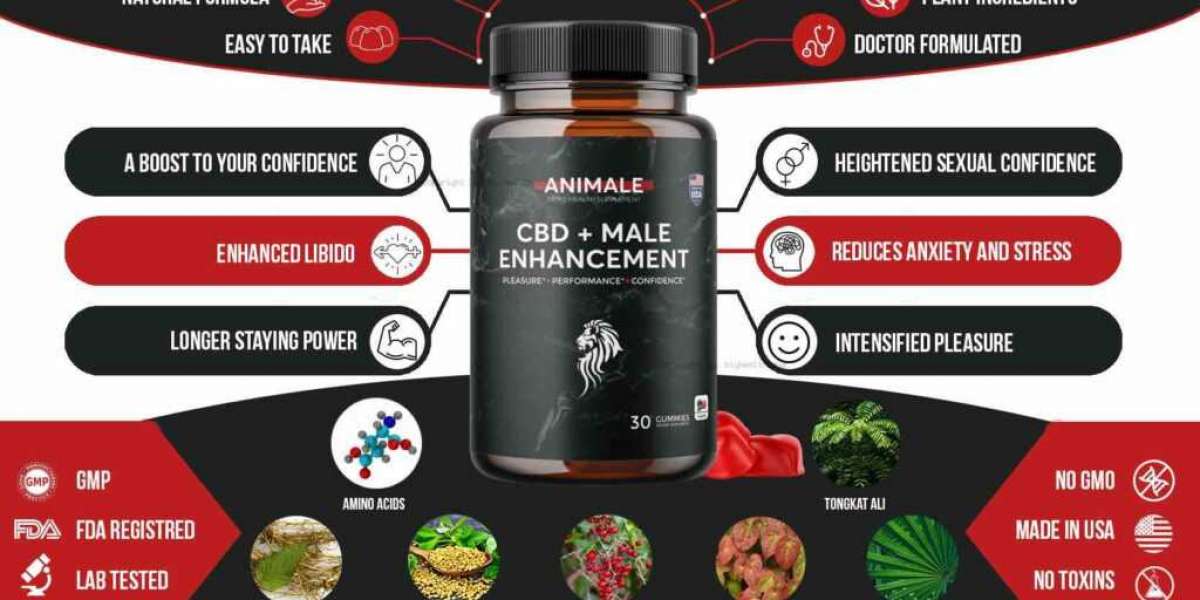Europe Snack Bar Market Trends and Forecast (2025-2033)
Market Summary
The Europe Snack Bar Market size was valued at US$ 3.46 billion in 2024 and is projected to reach US$ 6.42 billion by 2033, expanding at a CAGR of 7.11% during 2025-2033.
Market growth is driven by surging health consciousness, fast-paced urban lifestyles, and demand for nutritious, on-the-go snacks. Innovations in protein bars, plant-based snacks, and expanding availability through retail and e-commerce are reshaping the industry landscape.
Europe Snack Bar Market Overview
Snack bars are ready-to-eat nutrition products, often made from wholesome ingredients like grains, nuts, seeds, and dried fruits. They cater to diverse dietary preferences with varieties such as:
- Protein Bars
- Energy Bars
- Cereal Bars
- Meal Replacement Bars
Europe's urbanized, health-aware population prefers snack bars for energy boosts, post-exercise recovery, and meal supplementation, making them staple products in supermarkets, convenience stores, and online platforms.
Growth Drivers
- Rising Health Consciousness
- Shift to natural ingredients: Demand surges for organic, gluten-free, and low-sugar snack bars.
- Clean-label movement: Consumers prefer bars free from artificial additives and preservatives.
- Stat insight: According to FMCG Gurus (Jan-2023), 60% of EMEA consumers have grown more health-conscious, primarily influenced by the COVID-19 pandemic.
- Hectic Lifestyles and Urbanization
- Over 75% of Europe’s population now lives in urban areas (2024, Eurostat).
- Busy professionals, students, and travelers opt for convenient nutrition options.
- Fast-food sales rose by 35% in European urban centers (2022–2024), boosting demand for snack bars as healthier fast snacks.
- Functional and Plant-Based Innovation
- Introduction of probiotic, adaptogen-infused, and superfood-enriched bars.
- Rising popularity of vegan and dairy-free snack bars.
- Example: Nature Valley launched savory nut crunch bars (May 2023), tapping into flavor diversification.
Challenges in the Europe Snack Bar Market
- High Competition and Saturation
- Numerous global and local brands crowd the market.
- Price wars and heavy promotional discounts challenge new entrants.
- Differentiation through innovation, branding, and premium positioning is critical.
- Consumer Skepticism over Sugar Content
- Despite healthy branding, many bars are criticized for high sugar levels or hidden additives.
- Regulatory bodies are tightening sugar and labeling rules.
- Clean-label, low-sugar product innovation is necessary to build consumer trust.
New Publish Reports
- Europe Protein Ingredients Market Size and Share Analysis - Growth Trends and Forecast Report 2025-2033
- Europe Respiratory Care Devices Market Size and Share Analysis - Growth Trends and Forecast Report 2025-2033
- Europe Electric Vehicle Market Size and Share Analysis - Growth Trends and Forecast Report 2025-2033
- Europe Neonatal Intensive Care Market Size and Share Analysis - Growth Trends and Forecast Report 2025-2033
Key Segments Analysis
By Confectionery Variant
- Cereal Bars: High fiber; preferred for quick breakfasts and low-calorie snacking.
- Fruit Nut Bars: Popular among consumers seeking natural and minimally processed products.
- Protein Bars: A staple for fitness-focused individuals and growing among casual snackers.
By Distribution Channel
- Supermarkets/Hypermarkets: Major sales channel.
- Convenience Stores: Grab-and-go culture drives growth.
- Specialty Stores: Appeal to health-conscious niche consumers (vegan, keto, organic).
- Online Stores: Rapidly expanding with subscription models and DTC brands.
Country-Specific Insights
Germany
- Leading market due to emphasis on organic, clean-label, and vegan snack bars.
- Ferrero’s acquisition of a snack bar factory in Germany (April 2023) indicates strong future investment.
Russia
- Market growing amid health awareness, but price sensitivity dominates consumer choice.
- Protein and energy bars are key growth areas.
United Kingdom
- Strong preference for plant-based, gluten-free, and sugar-free snack bars.
- Sustainability focus: Brands leverage recyclable packaging and ethical sourcing.
Competitive Landscape
Key players dominating the Europe Snack Bar Market include:
- Abbott Laboratories
- Ferrero International SA
- General Mills Inc.
- Halo Foods Ltd
- Kellogg Company
- Mars Incorporated
- Mondelēz International Inc.
- Nestlé SA
- PepsiCo Inc.
- The Hershey Company
Each player is focusing on:
- Product innovation (flavors, functional benefits)
- Mergers and acquisitions (like Ferrero in Germany)
- Expanding digital and retail footprints
FAQs
What is the market size of the Europe Snack Bar Market by 2033?
US$ 6.42 billion.
What is the forecast CAGR (2025–2033)?
7.11%.
Key drivers for market growth?
Health trends, busy urban lifestyles, functional and plant-based product innovation.
Top-selling types of snack bars?
Protein Bars, Cereal Bars, Fruit Nut Bars.
Major sales channels?
Supermarkets, Convenience Stores, Online Retail.
Top markets in Europe?
Germany, UK, Russia.
Key player strategy trends?
Clean-label innovation, e-commerce expansion, plant-based product launches.







